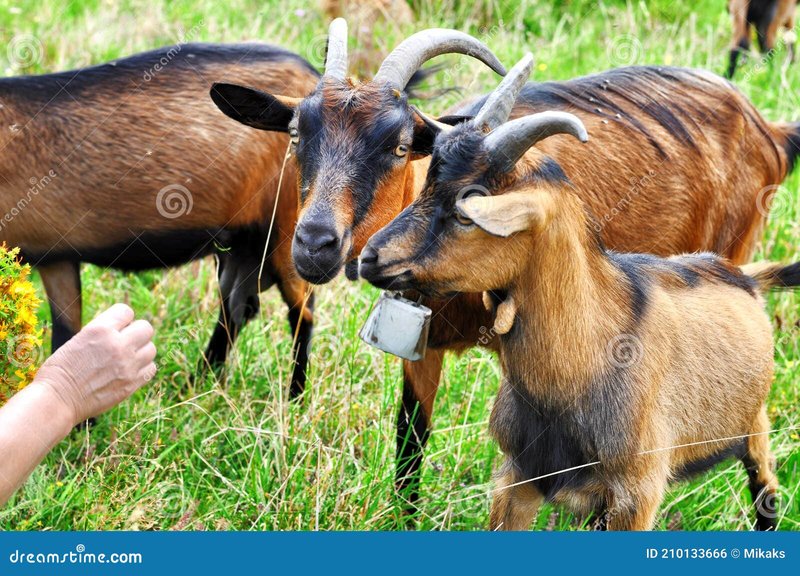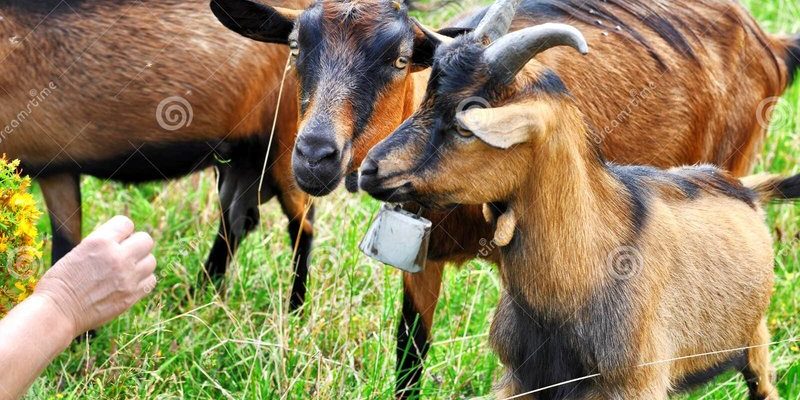
So, you might be wondering, what do these goats really need in their daily diet? Well, think of feeding Alpine goats like preparing a balanced plate—each component plays a role in their health, energy levels, and even their mood. In this article, we’ll dive deep into the nutritional needs of Alpine goats, exploring the best foods to feed them, and how to keep them healthy and happy.
Understanding the Basic Dietary Needs of Alpine Goats
When it comes to the diet of Alpine goats, it’s essential to understand their natural instincts. These goats are browsers, not grazers, which means they prefer to munch on leaves, shrubs, and other higher vegetation rather than just grass. Their diet should primarily consist of high-quality forage, which serves as the foundation of their nutrition.
Alpine goats require a balanced diet that is rich in fiber, carbohydrates, protein, vitamins, and minerals. You can think of fiber as the main course of their meals, helping with digestion and keeping their rumen healthy. Here’s a breakdown of what their diet should include:
- Forage: This includes hay, pasture, and browse. Alfalfa hay is an excellent source of protein and calcium.
- Grains: While grains can provide energy, they should only make up a small portion of their diet to prevent digestive issues.
- Mineral Supplements: Essential for bone health and metabolic functions. Look for a mineral block formulated for goats.
Feeding them various types of forage keeps their diet interesting and meets their nutritional needs. You’d be surprised how much goats enjoy munching on different plants!
The Role of Forage in an Alpine Goat’s Diet
Forage is the cornerstone of an Alpine goat’s diet. Imagine it as the salad bar at your favorite restaurant—lots of choices to keep things exciting! Fresh, high-quality forage not only provides nutrients but also satisfies their natural browsing instincts.
Alpines need about 2-4% of their body weight in forage daily. That means if you have a 150-pound goat, they should consume at least 3-6 pounds of forage every day. Hay is a crucial part of this forage. Look for grass hay or legume hay like alfalfa. Alfalfa, in particular, is richer in protein and calcium—great for lactating or growing goats.
Here’s the thing: old or moldy hay can lead to health problems. Always check for dust, mold, or a funky smell. Good-quality hay should smell fresh and have vibrant colors. Also, consider rotational grazing if you have a pasture. This practice keeps grass fresh and helps prevent overgrazing, contributing to sustainable feeding habits.
Supplementing with Grains and Commercial Feeds
While forage should be the primary part of an Alpine goat’s diet, grains can provide extra energy, especially in pregnant or lactating females. Think of grains like dessert—we all love a little treat, but they shouldn’t make up the whole meal.
When adding grains to your goats’ diet, go for options like oats, barley, or corn. But use them sparingly! A good rule of thumb is to limit grains to about 0.5 to 2 pounds per day, depending on their age, weight, and whether they’re pregnant or milking.
Some farmers choose commercial feeds designed for goats. These feed mixes often contain balanced nutrients and are fortified with vitamins and minerals. If you’ve ever felt overwhelmed by all the feed options, it can help to talk to local farmers or your veterinarian about what works best for your specific situation.
Special Nutritional Considerations for Gestating and Lactating Goats
If you’re getting ready for baby goats—or kids—there are some special nutritional needs to keep in mind. During gestation and lactation, Alpine goats require more energy, protein, and calcium. Think of it like needing a little extra fuel when you’re preparing for a big race.
For pregnant goats, increase their protein intake about a month before they’re due to help support fetal development. Once they give birth, provide them with plenty of high-quality forage and consider adding extra calcium to their diet. This is critical during milk production. Goat milk is nutritious, and having strong bones means happy, active kids!
Ensure they have access to a mineral block designed specifically for goats. These blocks will help meet the increased calcium and phosphate requirements during these critical times. You might even find they’re a little more eager to eat with the extra nutrients in their diet!
Hydration: The Overlooked Essential
When discussing feeding and nutrition, it’s easy to overlook water, but it’s just as vital as food for Alpine goats. Let me explain—water is the unsung hero in their diet. Without it, even the best-quality feed won’t be effective.
Goats should always have access to clean, fresh water. Adult goats typically drink about 1-3 gallons per day, depending on their activity level, the weather, and their diet. During hot months or when they’re lactating, their water intake may increase significantly.
It might help to have multiple water sources in their living area so they can stay hydrated without battling each other for a drink. If you notice your goats drinking less, it could signal health issues, so keep an eye on their habits.
Identifying and Addressing Nutritional Deficiencies
Even with a well-planned diet, goats can face nutritional deficiencies just like humans. You might be wondering how to spot the signs. Common symptoms include changes in appetite, less energy, and abnormal behavior. Anemia can show up as pale gums or lethargy.
If you think your Alpine goat needs a nutrition boost, it’s best to consult with a veterinarian who specializes in livestock. They can help with blood tests to pinpoint any deficiencies and suggest appropriate supplements.
Adding a balanced mineral supplement can prevent many deficiencies. Look for products specifically formulated for goats that contain the necessary vitamins and minerals. Sometimes, all it takes is a small adjustment to their diet to get them back to their playful selves!
Feeding Alpine goats isn’t just about filling their bellies; it’s about providing them with a *balanced, nutritious diet* that supports their health and well-being. From high-quality forage to occasional grains and proper hydration, each element plays a role in their overall happiness.
When you understand their dietary needs and get to know your goats’ preferences, it’s almost like developing a friendship through food—one that keeps them healthy, happy, and thriving. So, whether you’re a seasoned goat owner or just starting your flock, remember that a little care in their nutrition can go a long way toward a fruitful and delightful goat-keeping experience!

